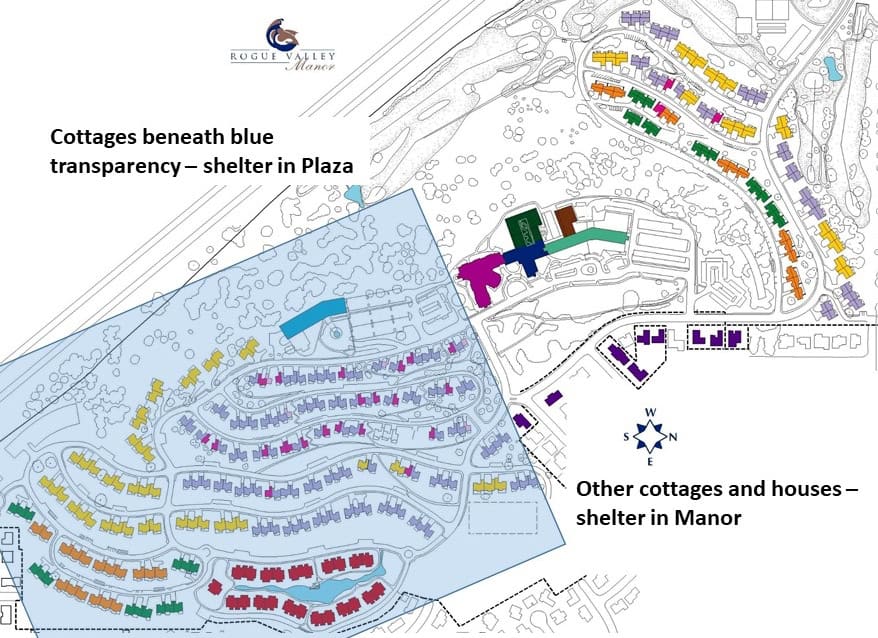NOW — In Case of Fire…
by Bob Buddemeier
After recent experiences and in the midst of another ferocious fire season in the Western US, RVM residents can take some comfort in the dedication of staff to developing and improving emergency preparedness, and planning for effective action.
In the recent Residents Council meeting, Executive Director Stan Solmonson outlined the new procedures for responding to wildfire alerts – and especially evacuations.
Unlike the whole-campus mandatory evacuation we underwent for the Almeda fire, any future Level 3 Alert for the Manor would provide the opportunity to shelter in place in the high-rise buildings for any residents who cannot, or do not wish to, self-evacuate. Those who are able to leave will be free to do so, subject only to the need to check out with a staff member or RPG coordinator so that RVM can keep track of residents still present.
 If an evacuation is ordered, tower residents who choose not to leave (as well as licensed facility residents) will remain in place in the towers. Cottage residents who do not evacuate off campus will be transported to the towers – North Village and RVM Drive to the Manor, and South Village to the Plaza.
If an evacuation is ordered, tower residents who choose not to leave (as well as licensed facility residents) will remain in place in the towers. Cottage residents who do not evacuate off campus will be transported to the towers – North Village and RVM Drive to the Manor, and South Village to the Plaza.
Associate Executive Director Alexander ben Israel has stressed that cottage residents who remain on campus must NOT drive to the towers, as congestion and parking problems would further complicate the situation. RVM buses will circulate to transport those who need to evacuate to the high-rises.
Is this safe? We can have confidence in the decision. RVM Administration has consulted extensively with emergency authorities and undergone Fire Department inspections. The plan is approved by the Fire Marshall, based on the nonflammability of the high-rise construction and the lack of local fuel and fire pathways.
In an earlier Friday briefing, Stan enumerated some of the precautions already taken – clearing the perimeter fire road, providing irrigation for the hillslopes, removing flammable waste such as compost material, and maintaining an ongoing program of fuel reduction by Facility Services.
In addition to general practicality, this plan will benefit the most vulnerable members of our community – those who are ill, frail, or confused. They will be spared long trips to unfamiliar destinations under unpleasant and potentially dangerous conditions, and will be able to receive very nearly their normal level of care.
The details of the plans and procedures are still under development, and more information will be forthcoming. However, we can rest assured that there is continuing attention and effort going into upgrading our emergency preparedness and defenses.




Leave a Reply
Want to join the discussion?Feel free to contribute!